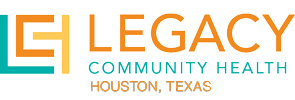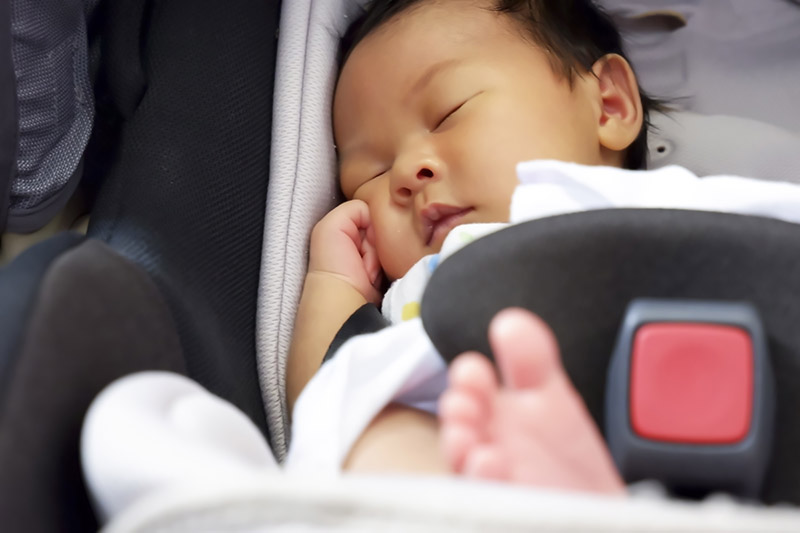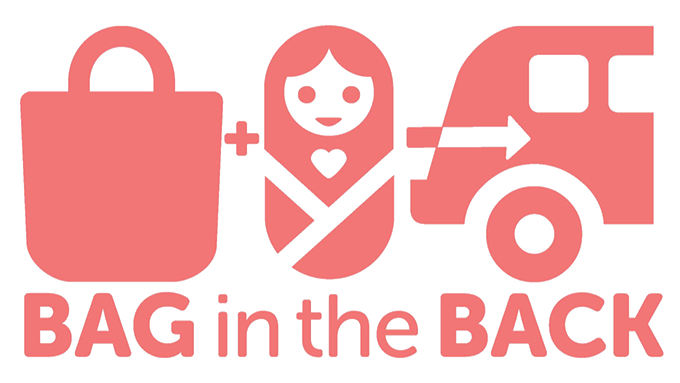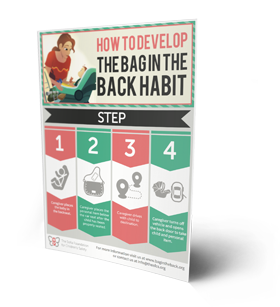Translate this page






Bag in the Back
Safe Habits Save Lives
The Bag in the Back campaign advocates for the lives and wellbeing of children by increasing awareness of vehicular heatstroke and instilling lasting safety and prevention habits. We aim to:
Empower parents and caregivers by creating comprehensive and easy-to-read materials on hazards that put infants’ and children’s lives at risk.
Advise caregivers, healthcare providers, educators, and the community of safety and prevention habits that can be implemented immediately.
Thank You
Partners & Support
There are over 12 million children between the age of 0–3 years old. Our goal is to reach all of their families to communicate the threat of vehicular heatstroke. We worked with a variety of organizations in 2019 to spread our message of awareness – thank you!









Watch the video to learn about the essential habit that every caregiver should know
Get Educated about Vehicular Heatstroke...and Pass it On!
Vehicular heatstroke is not commonly talked about with expecting and new parents. When the media covers cases of children dying in hot cars, the focus is often on vilifying the parents, rather than educating the public of the risk to all parents. When parents are inaccurately portrayed as careless and unloving, attentive parents dismiss this issue as not relevant to them, believing they “could never forget” their child. That's why we need the help of parents, healthcare providers, and caregivers to help us spread our message of prevention by downloading, distributing, and displaying our informational material.

For Parents
Parents receive advice from all corners when raising a child. Unfortunately, information about the risks of vehicular heatstroke is not relayed to parents nearly as often as information about other childhood risks. Click below to learn more about developing a Bag in the Back habit and to get the resources you need to prevent a tragedy.

For Pediatricians & Hospitals
Pediatricians and healthcare providers can play a unique role in preventing pediatric vehicular heatstroke by informing families about the risk of unknowingly leaving a child in the car. Click here for resources you can use in your practice, office, or hospital.

For Daycares
Daycare providers see parents and their children on a daily basis. Because of this unique relationship, daycare providers are in prime position to educate parents about the risks of vehicular heatstroke and to encourage parents to develop the lifesaving Bag in the Back habit. Click here to learn how you can prevent a tragedy.
about THE CAMPAIGN
Keep Your Little Passengers Safe
Hot car deaths have increased dramatically since the 1990s, when car seats were moved from the front seat to the back seat to avoid airbag injuries.
More than half of parents do not practice any habit to prevent accidentally leaving their child in the car. That’s what the Bag in the Back campaign is designed to correct.
Developing a Bag in the Back habit is a straightforward solution to a problem that no parent wants to face. It is a habit that every person who is driving a child in a car seat should practice – whether or not their child is in the car.
The habit teaches caregivers to put an essential personal item i.e., a purse, cell phone, a shoe, the back pack, etc., in the back seat of the car below the car seat. If practiced properly, it will ensure that every time the caregiver turns off the car engine, he/she will have to open the back door to pick up the personal item that was placed there. This habit minimizes the possibility that they will unknowingly leave their child in the vehicle.
Parents and caregivers who unintentionally leave a child in their car often do so as a result of stress or a change in routine – their brains may be coping by reverting to autopilot, which leaves them vulnerable to making a tragic mistake.
The COVID-19 pandemic is a time of heightened stress, and families all over the world are dealing with massive changes to their normal routines. That makes it especially important to promote the Bag in the Back habit during these challenging times. Together, through education and outreach, we can encourage habits and save lives.

about us
Knowledge is power, and safe habits save lives.

Keeping your child safe in the car goes beyond proper car seat installation. Sleeping, rear-facing children are quiet passengers and a significant number of parents have unknowingly left their child in the car. This puts the child at risk of injury or vehicular heatstroke.
DATA
Vehicular heatstroke
Pediatric vehicular heatstroke occurs when a child dies due to being left – intentionally or unintentionally – in a hot car.
VS.
5% of parents receive information about preventing vehicular heatstroke from their doctor while 90% receive information about SIDS
about THE CAMPAIGN
Keep Your Little Passengers Safe
Hot car deaths have increased dramatically since the 1990s, when car seats were moved from the front seat to the back seat to avoid airbag injuries.
More than half of parents do not practice any habit to prevent accidentally leaving their child in the car. That’s what the Bag in the Back campaign is designed to correct.
Developing a Bag in the Back habit is a straightforward solution to a problem that no parent wants to face. It is a habit that every person who is driving a child in a car seat should practice – whether or not their child is in the car.
The habit teaches caregivers to put an essential personal item i.e., a purse, cell phone, a shoe, the back pack, etc., in the back seat of the car below the car seat. If practiced properly, it will ensure that every time the caregiver turns off the car engine, he/she will have to open the back door to pick up the personal item that was placed there. This habit minimizes the possibility that they will unknowingly leave their child in the vehicle.
Parents and caregivers who unintentionally leave a child in their car often do so as a result of stress or a change in routine – their brains may be coping by reverting to autopilot, which leaves them vulnerable to making a tragic mistake.
The COVID-19 pandemic is a time of heightened stress, and families all over the world are dealing with massive changes to their normal routines. That makes it especially important to promote the Bag in the Back habit during these challenging times. Together, through education and outreach, we can encourage habits and save lives.





